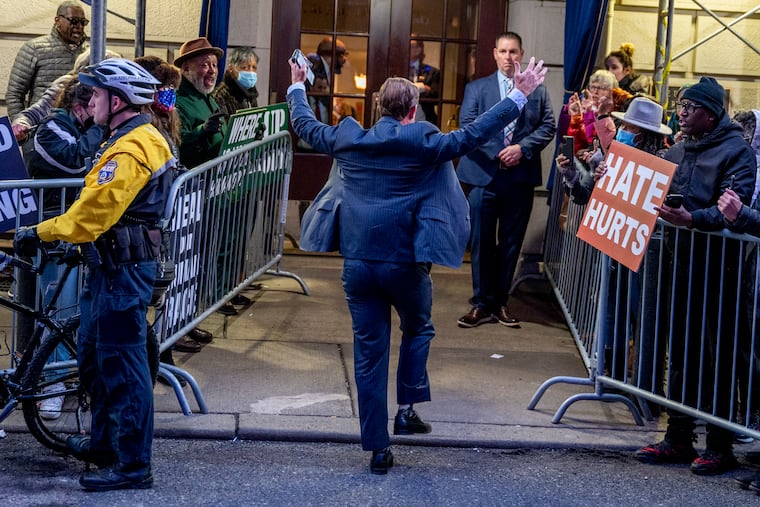Big Brothers Big Sisters said ‘no thanks’ to Union League scholarship offer. So Philly’s Black community stepped up.
Would standing up for what was right end up costing these students some invaluable help for their future? What happened next brought Marcus Allen to tears.

The Union League hasn’t been a particularly good citizen lately. Nonetheless, on Wednesday, the elite club will host its annual Good Citizen program, which teaches civics and presents awards to high school students.
But all five students who would have participated from Philly’s chapter of Big Brothers Big Sisters won’t be there.
Marcus Allen, the chief executive of Big Brothers Big Sisters Independence Region, withdrew the young charges from this year’s Union League event, citing concerns over the league’s honoring of Florida Gov. Ron DeSantis, who has banned the teaching of AP African American Studies and shipped unauthorized migrants out of his state to score political points. In bestowing upon DeSantis its highest honor, the league ignored the pleas of many of its own members and disrespected the city’s Black population.
“We just felt like it sent the wrong message to our community to honor a guy who has put forth the sort of policies that Gov. DeSantis has put forth in Florida,” Allen told me. “We felt like that was just someone spitting in our face.”
This year would have been the first time Big Brothers Big Sisters has taken part in the league’s Good Citizen program, which got its start in 1946. After the students had been nominated by Big Brothers Big Sisters staff, Allen struggled with the decision to pull out, because students who attend the program are eligible to apply for a college scholarship from the Union League worth at least $5,000. Allen worried: Would his decision to stand up for what was right end up costing these students some invaluable help for their future?
Allen mentioned his concern in passing earlier this year to Ellyn Jo Waller, the first lady at Enon Tabernacle Baptist Church. Soon, Enon’s senior pastor, the Rev. Alyn E. Waller, called Allen and informed him that he would ask the NAACP, local churches, and community residents to contribute to a fund that would provide each of his five students with a $5,000 college scholarship.
The gesture nearly brought Allen to tears.
“It took me by total surprise,” Allen told me. “It just melted my heart ... to me it just really underscored this amazing Black community that we have in Philadelphia and that most people don’t hear about.”
» READ MORE: The Union League should not honor Ron DeSantis
The checks were distributed to the students and their families at Enon Tabernacle Baptist Church during services on March 12. It was an important moment, one that I wish I had been there to witness. It demonstrated the importance of understanding that old saying: “All money ain’t good money.”
Young people need to know the history of African Americans in this country. They need to be taught what really happened — not a watered-down version like the one recently suggested by a textbook publisher for Florida schools, which would remove any mention of race when teaching about civil rights icon Rosa Parks.
Waller, who had been among those protesting outside the league in January, pointed out that Philadelphia is a city with a population that is 44% African American, and the fact that the Union League chose to disregard the wishes of so many and honor someone with “a track record of racist behavior” is an “affront to us.”
This moving example — of how he and other members of the city’s Black community pitched in to help a group of kids whose mentor made the difficult decision to stick to his principles — warms my heart.
At a time when so much is going wrong in Philly, it feels good to write about something positive. The way the various entities got together and raised the money for the Big Brothers Big Sisters students is how Black churches traditionally have supported historically Black colleges and universities, and taken up special collections to help their members’ children further their education.
It sends a powerful message, too.
“Our freedom cannot be financed by anyone else,” the Rev. Marshall Mitchell, who was one of the donors, told me. “African Americans can truly determine their own destiny, can be philanthropic and generous, and be bold and resist at the same time.”
The scholarship recipients were taught a valuable lesson about self-determination in the Black community. I pray it’s one that they will remember for the rest of their lives.